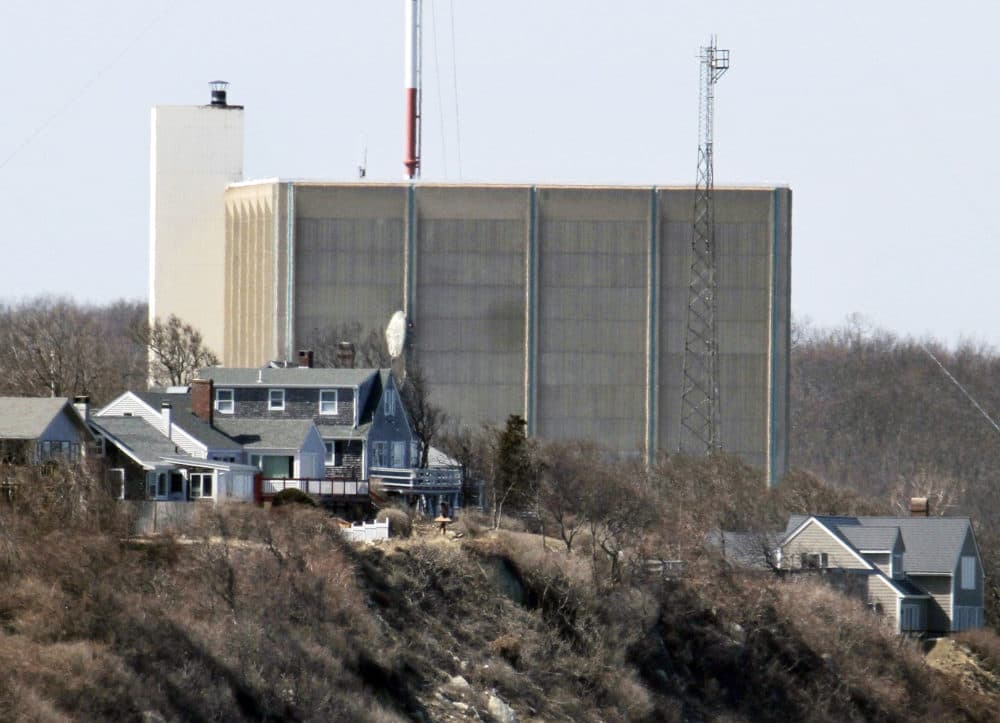Advertisement
Feds Exempt Shuttered Pilgrim From Emergency Requirements

Federal regulators have signed off on a request to exempt the now-closed Pilgrim Nuclear Power Station from certain emergency planning and preparedness requirements, the Nuclear Regulatory Commission announced Monday.
Soon after the federal agency announced its decision, U.S. Sen. Edward Markey called it "shocking" and said he plans to introduce legislation in the U.S. Senate to "correct this wrong."
The NRC said its approval exempts the Plymouth plant, which stopped generating electricity on May 31 after helping to power the region since 1972, from federal requirements "that are no longer appropriate for the plant now that it has permanently ceased operations." The agency said its decision is "consistent with NRC action for previous decommissioning plants."
The exemptions were first requested in August by Entergy, the company that has since sold the plant to Holtec International. In its request, Entergy said the exemptions "would eliminate the requirement for the licensee to maintain formal offsite radiological emergency preparedness plans, but would still require the licensee to maintain certain onsite capabilities to communicate and coordinate with offsite response authorities."
The NRC said its staff "evaluated and confirmed" the analyses submitted by Entergy "to show the exemptions are warranted." State and local governments will be able to rely on "all hazard" planning for off-site emergency response to events at the plant instead of having a dedicated off-site radiological emergency plan. As a result, the NRC said, there will no longer be a 10-mile emergency planning zone as called for in Pilgrim's license.
"When compared to an operating power reactor, the risk of an offsite radiological release is significantly lower and the types of possible accidents are significantly fewer at a nuclear power reactor that has permanently ceased operations and removed fuel from the reactor vessel," the NRC said in its announcement.
The news did not sit well with Markey, who had written to the NRC in September with U.S. Sen. Elizabeth Warren and U.S. Rep. William Keating to urge the nuclear power overseers to reject the request to be exempted from emergency planning requirements.
"Pilgrim should not get an exemption for key emergency preparedness and planning regulations while dangerous nuclear spent fuel is still cooling in open pools and threatening local residents," Markey said in a statement. "The NRC's decision is shocking but not surprising to all of us who have watched how the public's concerns have been consistently ignored during the decommissioning process at the Pilgrim plant."
The NRC said that all spent fuel from Pilgrim "has been permanently moved from the reactor vessel into the spent fuel pool for storage." But Markey argued that Pilgrim's spent fuel pool was designed to hold 880 fuel assemblies, but today is holding more than 2,300.
"I plan to reintroduce legislation that would correct this wrong, move nuclear fuel into safer dry cask storage, and ensure that key protections remain for Plymouth any community living in proximity to nuclear waste," Markey said.
Attorney General Maura Healey sued the NRC in the U.S. Court of Appeals for the District of Columbia Circuit over the agency's decision in September to approve the transfer of Pilgrim's license from Entergy to Holtec International.
Healey, Gov. Charlie Baker's energy and environment secretariat and members of the state's Congressional delegation mounted an effort to block the transfer unless the NRC held a full hearing on concerns over Holtec's ability to safely decommission the nuclear plant, the company's financial stability and its alleged involvement in a kickback scheme. No hearing was held before the NRC approved the transfer.
The NRC declined to comment on Healey's lawsuit when it was filed, but the agency refuted some of Healey's arguments when it issued its order approving the license transfer.